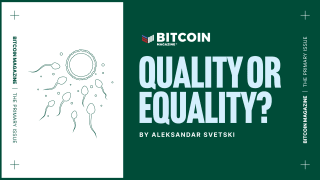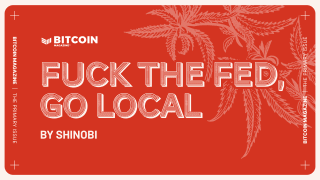Bitcoin4Couples is a duo-author of Nicole and Josh Doña — instances of first person are marked with (name) to avoid confusion.
On May 18, 2021, Cameron and Tyler Winklevoss appeared on Coffee with The Greats, a podcast hosted by Miles Fisher. Anytime the Winklevii join a podcast it’s a must-listen, but this time was more profound than any other. They opened up about the tragedy they experienced losing their beloved sister to addiction and suicide. They share the personal trauma and impact their loss has had on them. Tyler Winklevoss had the courage to share that he has sought help from a therapist for his own mental health, even saying it has been the greatest gift he’s ever given himself.
Mental health is a complex and delicate balance made up of psychosocial, physiological, and environmental factors that interact constantly within our human experience. All of us have varying degrees of mental health with varying needs and experiences. We may not have sufficient symptoms to warrant a diagnosable condition, but when our thoughts and emotions become distressing or create obstacles to daily life, we may benefit from seeking help.
Distinguished professor of psychology and author in the field of mental health stigma, Patrick Corrigan Psy.D., discusses the impact of stigma on help-seeking behaviors. Self-stigma internalizes social stereotypes of mental health disorders and discourages people from seeking help for fear of being labeled. Interestingly, his published research has concluded that the best way to erase the stigma of having mental health challenges is self-disclosure. Self-disclosure is defined as opening up and sharing about one’s own struggles with mental health.
As Dr. Corrigan puts it, “coming out” about one’s own mental health challenges “is associated with decreased negative effects of self-stigmatization on quality of life, thereby encouraging people to move towards achieving their life goals. When people are open about their condition...they may soon find peers or family members who will support them even after knowing their condition, and they may find that their openness promotes a sense of power and control over their lives.” Cameron and Tyler Winklevoss’ courageous disclosure of their own experiences of mental health in their family and personal lives effectively de-stigmatizes the reality that one in four people experience mental health distress and normalizes help-seeking behaviors.
The Bitcoin ecosystem is a large and diverse web of people with vast and far-reaching knowledge and experiences. As I (Josh) have plunged into this ecosystem over the past few months, I have been impressed by the high degree of creativity, innovation, and resilience in it. And yet, with all this strength, there is an underlying weakness that is unavoidable as humans. We all have minds and hearts that are subject to thoughts and emotions that we can’t always control or escape. As anyone holding a significant portion of their net worth in bitcoin can attest, watching its price go up and down can be an emotional roller coaster, especially for those of us who started buying at $50,000+.
Price volatility — which often leads to emotional volatility — can contribute to poor mental health outcomes, as my wife and I have experienced first-hand. I have had many sleepless nights due to anxiety at different price points, have constantly checked the price on my phone, and have struggled to detach from the infinite stream of Bitcoin-related content in the metaverse to connect in the physical world with my wife. Combining these factors of price volatility, sleepless nights, anxiety, impulsivity and detachment have led to conflict, which has negatively affected my mental health as well as my wife’s.
As we've invested increasing percentages of our savings, I (Nicole) have struggled with anxiety especially when the price dips. I have lashed out at Josh and have even struggled with depression over what I fear we may have lost.
In my own experience, I (Nicole) know it has been a challenge to admit when I need help or am experiencing emotions or thoughts that are just too much. I am often afraid that if I just admit to myself or a friend that my experiences are overwhelming, that my fears will become a reality and others around me will find me overwhelming too. The truth is that the opposite has happened: the more I accept these intense emotions and share them openly the more I find community, support, and belonging.
Over the past two months, I (Josh) have benefitted from talking with a therapist who is able to listen to what I'm going through, including my Bitcoin journey, in a non-judgmental way. We are also able to discuss how my bouts with addiction have affected me, and my relationships. Though I was resistant to seeking this help for years, my mental health is now improving as I am learning to embrace this resource.
Mental and emotional challenges do not have to isolate us in this volatile world we live in. Just as the Winklevoss brothers showed us, we can seek help, share, and find acceptance when we need it most. If you are experiencing feelings of distress and find emotions or thoughts creating obstacles to your life, we hope this helps you feel empowered to reach out for help and community.
Here are some resources below:
Peer-Run Warm Line (CA, U.S.): 855-845-7415;
https://www.mentalhealthsf.org/peer-run-warmline/
National Suicide Prevention Lifeline: 800-273-8255;
https://suicidepreventionlifeline.org/
Disclosure: We are not licensed psychologists. This article is not intended to substitute for professional advice. We only seek to share our own experiences and resources with the hope of empowering others.
This is a guest post by Bitcoin4Couples. Opinions expressed are entirely their own and do not necessarily reflect those of BTC, Inc. or Bitcoin Magazine.













